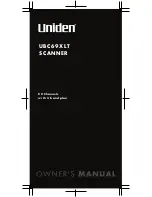
R
eputable imaging bureaus across the country offer customers the promise
of reliable work and on-time delivery. Few, however, add a feel-good factor
that makes outsourcing document conversion seem like an act of public
service.
Maryhaven Center of Hope’s work center in Yaphank, N.Y., is one such
facility. As a nonprofit agency that employs adults with disabilities, the work center
offers document scanning and microfilm conversion facilities to metropolitan area
businesses. The full-service imaging bureau also helps mentally and physically
challenged individuals enjoy the benefits of working and earning a paycheck.
Maryhaven’s work center opened in 1986 as a micrographics-only
operation. Customer demand persuaded John Mahoney, director of the
production and assembly work centers, to add document scanning to its
offerings in 2001. With its acquisition of a BÖWE BELL + HOWELL Spectrum
8125 production scanner, the change to the agency’s business processes was
almost instantaneous. Spectrum helped the center realize three to five times the
productivity of its micrographic cameras, which gave employees the opportunity
to earn more.
Maryhaven pays its employees a fixed fee for every document digitized. While
it took a trained employee eight to 12 hours to microfilm a banker’s box full of
documents (about 3,000 images), it took him or her only two to three hours to scan
the same number of images. This four-fold jump in productivity allowed Maryhaven
to increase the center’s profitability and improve its employees’ take-home pay.
Scanner Showdown
Overwhelmingly positive customer response to the center’s new imaging
abilities, combined with clear business benefits, convinced Maryhaven to expand
its scanning operation several years later.
In deciding what scanning hardware to purchase, the center’s technical
supervisor, Jim Papello, pitted a few scanners against one another. “BÖWE
BELL + HOWELL’s Spectrum XF 8140 model won the scanner face-off based on
four critical attributes,” said Papello, “ease of use, smart document management,
image quality and durability.”
Maryhaven processes a large number of medical records and court
documents of all sizes and shapes. Not only did the Spectrum XF scanner
process these documents quickly and efficiently, but it proved to be the most
durable scanner in Papello’s test production environment.
Another distinct advantage was that Maryhaven employees found it easier
to train and work on the scanner. Spectrum XF complies with Section 508
of the U.S. Rehabilitation Act of 1973, a federal regulation that mandates the
accessibility of information technology systems used or procured by the U.S.
government.
Spectrum XF is accessible to wheelchair-users. Its moving parts do not
require more than five pounds of physical force to use. A feature on the operator
interface communicates written information on the front panel LCD to blind or
visually impaired operators via a series of audible tones. Quick reference guides
provided in Braille and large print explain the meaning of each tone sequence, as
well as how to navigate user menus.
“… Spectrum XF 8140
won the scanner face-off
based on four critical
attributes: ease of
use, smart document
management, image
quality and durability.”
Maryhaven Technical Supervisor,
Jim Papello
Maryhaven Center of Hope
Scans for Good
Production scanning helps nonprofit agency provide
meaningful employment and a sustainable income to
adults with disabilities
S
T
U
D
Y




















